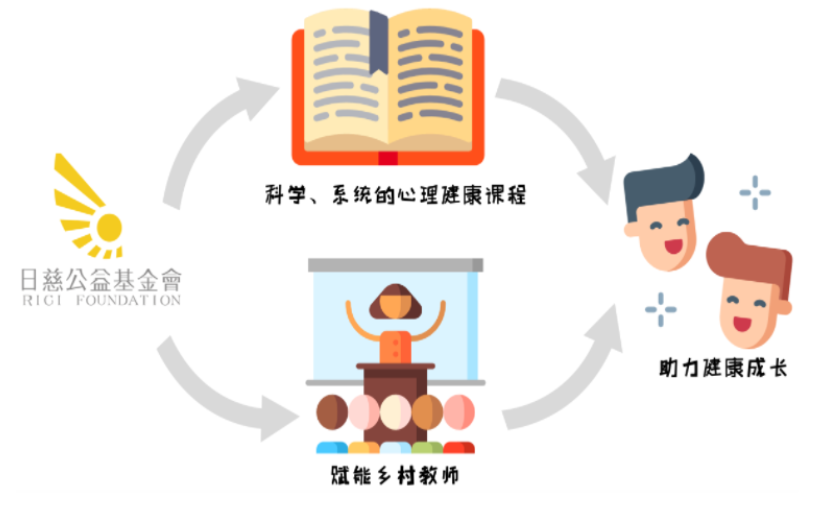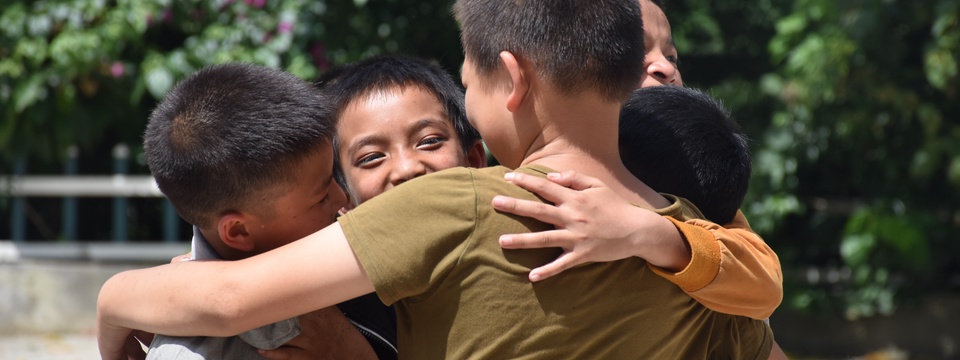In recent years, the mental health problems of adolescents have attracted more and more attention.According to statistics, the prevalence of depressive symptoms among children and adolescents in rural areas of China has reached 20%, while the detection rate of psychological problems among left-behind children is as high as 57%.In rural areas where a large number of laborers are exported, children show more serious psychological problems.The lack of family education, the shortage of teachers in rural areas, and the lack of attention to mental health education have led to many children's psychological crises being difficult to face and treat scientifically.The survey found that the group of left-behind children showed higher levels of depression and anxiety, and particularly needed psychological support and guidance.Due to the lack of resources in rural areas, teachers often lack the corresponding knowledge and skills.
Guangdong Rici Foundation has innovatively shifted its focus from the traditional “therapeutic perspective”to the “preventive perspective”in response to the psychological needs of rural children, paying attention to the development of children's early psychological abilities and launching the “Flourish Magic School”project.The project is based on the perspective of prevention, with positive psychology and social emotional learning as the theoretical foundation. Through curriculum development and teacher empowerment system construction, it is implemented in cooperation with local rural education public welfare organizations, local education departments, and rural teachers. It aims to cultivate rural mental health education teachers, carry out mental health education activities for rural students in grades 1-9, and cultivate their skills in emotional management, social awareness, self-learning, relationship development, independent decision-making, and self-growth. This will enhance the resilience of young children and prevent the occurrence of psychological problems.

The project provides activity manuals, training, and various support for rural teachers. Teachers can complete online application, learning, feedback, Q&A, and interactive communication.In order to better coordinate with relevant institutions, broaden service channels, and explore county-level cooperation models, the project has conducted in-depth exploration of teacher training and the establishment of a mental health education mechanism for local education bureaus. It has invested heavily in teacher psychological care, achieving a shift from "teacher as a medium" to "teacher as the core", so that mental literacy activities can be carried out continuously in the local area, creating a county-level ecosystem to serve more young people and children in the region.
According to the assessment results of the Rici Foundation, students who have participated in all the mental literacy activities have significantly improved in self-esteem, emotional management ability, interpersonal management ability, and other aspects: children who have suffered emotional harm have opened their hearts, integrated into the class, and regained their motivation to learn;Children who lack confidence find their own strengths, express their true thoughts, and become more confident and cheerful;The previously mischievous students began to understand discipline and manage their emotions, and their classmates were more willing to be close to them, leading to a more harmonious relationship between teachers and students. The teachers could see the changes, and the “Flourish Magic School” project has also received recognition from both teachers and students.

Since 2016, the “Flourish Magic School”project has provided a total of 11,619 activity manuals for primary and secondary school teachers across the country, supporting them in carrying out mental health education activities for 701,771 rural children.





